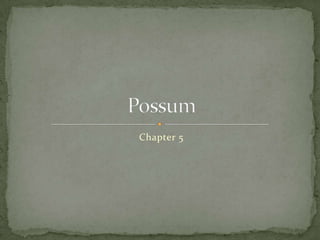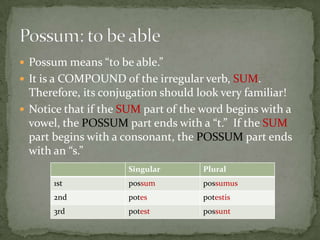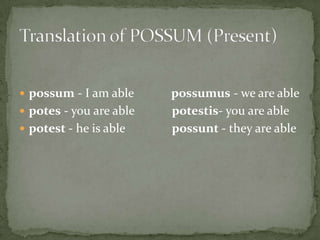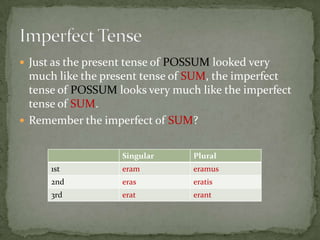Chapter 5 Possum
- 3. Possum means ŌĆ£to be able.ŌĆØIt is a COMPOUND of the irregular verb, SUM. Therefore, its conjugation should look very familiar!Notice that if the SUM part of the word begins with a vowel, the POSSUM part ends with a ŌĆ£t.ŌĆØ If the SUM part begins with a consonant, the POSSUM part ends with an ŌĆ£s.ŌĆØ Possum: to be able
- 4. possum┬Ā- I am able possumus┬Ā- we are ablepotes┬Ā- you are able┬Āpotestis- you are ablepotest┬Ā- he is able possunt┬Ā- they are ableTranslation of POSSUM (Present)
- 5. Just as the present tense of POSSUM looked very much like the present tense of SUM, the imperfect tense of POSSUM looks very much like the imperfect tense of SUM.Remember the imperfect of SUM?Imperfect Tense
- 7. poteram- I was able poteramus┬Ā- we were ablepoteras┬Ā- you were┬Āable poteratis- you were ablepoterat┬Ā- he was able poterant┬Ā- they were ableNotice that all forms of SUM begin with an ŌĆ£eŌĆØ (a vowel), all forms of POSSUM end in ŌĆ£t.ŌĆØTranslation of POSSUM (imperfect)






